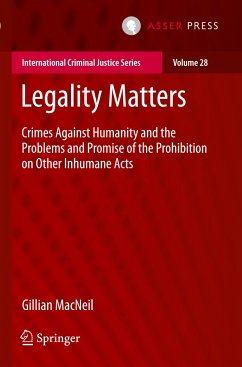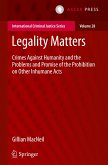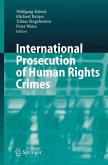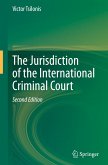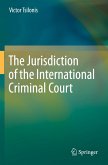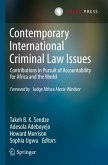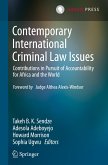This book examines the way international criminal courts and tribunals have interpreted the crimes against humanity proscription of other inhumane acts. This clause is consistently used in spite of the long list of more specific offences forbidden as crimes against humanity.
The volume proposes that the current approach is based on a misunderstanding of the nature of the clause. Properly understood, the clause is an invitation to courts to create and apply retroactive criminal laws. This leads to a problem. A prohibition on the use of retroactive criminal laws, one which admits no exceptions, is deeply embedded in international law.
The author argues that it is time to revisit the assumption that retroactive criminal laws can never be deployed in a fair legal system. Drawing lessons from an exploration on the way the prohibition on retroactive laws is applied in practice, she proposes a new framework for understanding the clause proscribing the commission of other inhumane acts.
This book will be of relevance to anyone interested in international criminal law or criminal law theory.
Gillian MacNeil is Assistant Professor at Robson Hall, the Faculty of Law of the University of Manitoba in Winnipeg, Canada.
The volume proposes that the current approach is based on a misunderstanding of the nature of the clause. Properly understood, the clause is an invitation to courts to create and apply retroactive criminal laws. This leads to a problem. A prohibition on the use of retroactive criminal laws, one which admits no exceptions, is deeply embedded in international law.
The author argues that it is time to revisit the assumption that retroactive criminal laws can never be deployed in a fair legal system. Drawing lessons from an exploration on the way the prohibition on retroactive laws is applied in practice, she proposes a new framework for understanding the clause proscribing the commission of other inhumane acts.
This book will be of relevance to anyone interested in international criminal law or criminal law theory.
Gillian MacNeil is Assistant Professor at Robson Hall, the Faculty of Law of the University of Manitoba in Winnipeg, Canada.

